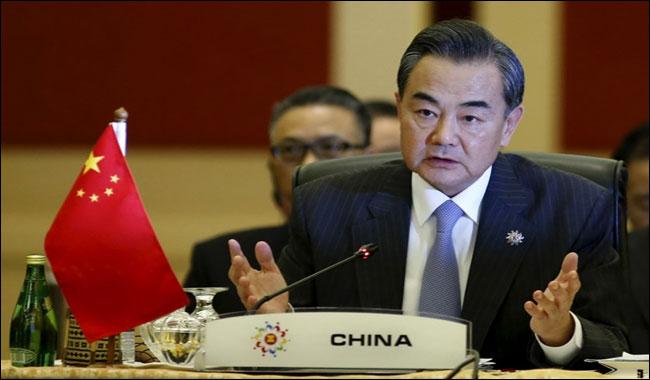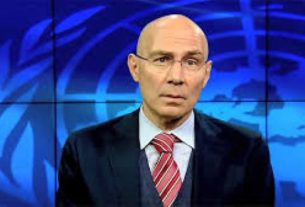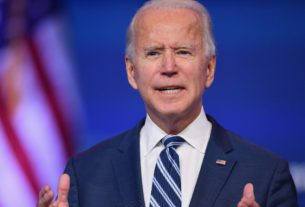China’s foreign minister stepped up threats Friday against the self-governing island of Taiwan, saying any who go against Beijing’s demand to exert control over the island are “playing with fire.”
Qin Gang’s remarks Friday came at the end of a speech espousing China’s contribution to the global economy and the interests of developing nations, in which he repeatedly praised Communist Party Secretary General Xi Jinping’s Global Security Initiative.
The concept is the latest of China’s moves to position its single-party political system, with its claim to social stability and economic growth, as an alternative to the Western liberal approach that largely defines international relations.
Toward the end of his speech in the financial hub of Shanghai, Qin turned to what China calls the “Taiwan problem,” using harsher terms than Chinese diplomats have typically employed in past in international settings.
“The safeguarding of national sovereignty and territorial integrity is beyond reproach,” Qin said.
“The Taiwan problem is at the core of China’s core interests,” he said. “We will never back down in the face of any act that undermines China’s sovereignty and security. Those who play with fire on the question of Taiwan will burn themselves.”
Such remarks are typically directed at the island’s democratically elected government under President Tsai Ing-wen and its most important ally, the United States. China considers Taiwan a part of its territory to be annexed by force if necessary.
Earlier in April, China held large-scale air and sea drills in the in areas surrounding Taiwan in retaliation for Tsai’s meeting with U.S. House Speaker Kevin McCarthy on April 5 in California. China said the exercises simulating an encirclement of Taiwan were intended as a “serious warning” to pro-independence politicians on the self-governing island and their foreign supporters.
China has stepped up its military pressure and diplomatic isolation against Taiwan in recent years, sending fighter jets and navy vessels towards the island on a near-daily basis.
While Taiwan maintains official diplomatic relations with just 13 sovereign states, it retains robust ties with most major nations, including the U.S.
After former House Speaker Nancy Pelosi visited Taiwan in August, China sent more and more military vessels over the midline of the Taiwan Strait, an unofficial boundary that had been accepted for decades.
The heightened pace of military activity and increasingly bellicose language have raised concerns about a possible conflict in one of the world’s most economically vital regions. Taiwan produces much of the world’s much-needed computer chips and the Taiwan Strait separating the island from mainland China is one of the world’s busiest waterways.
Taiwan will elect a new president and parliament in January, with China seen as heavily favoring the opposition Nationalist Party that backs political unification between the sides under terms yet to be defined. Taiwanese and U.S. authorities say China is using economic leverage and disinformation to bolster its military threats, but most Taiwanese responding to surveys back the status quo of de facto independence.__Daily Hurriyet





